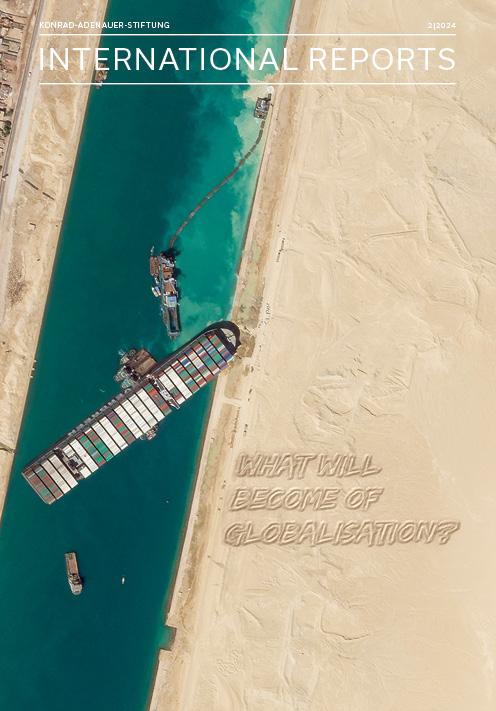International economic organisations are sounding the alarm bells over “geoeconomic fragmentation”, i.e. the realignment of trade and financial flows along geopolitical blocs. And while we should take the warnings about a potential loss of prosperity seriously, it is still right for German and European policymakers to pay more attention than before to the possibility of economic dependencies turning into a security risk.
View table of contentsAbout this series
International Reports (IR) is the Konrad-Adenauer-Stiftung's periodical on international politics. It offers political analyses by our experts in Berlin and from more than 100 offices across all regions of the world. Contributions by named authors do not necessarily reflect the opinions of the editorial team.
Order details
Our periodical on international politics is published four times a year. We provide you with background information on what is happening in the world – free of charge. Use our registration form and with just a few clicks you can read the digital version of our political journal or order the print version in German or English.
Editor
Dr. Gerhard Wahlers
ISBN
0177-7521
Benjamin Gaul

Head of the Department International Reports and Communication






